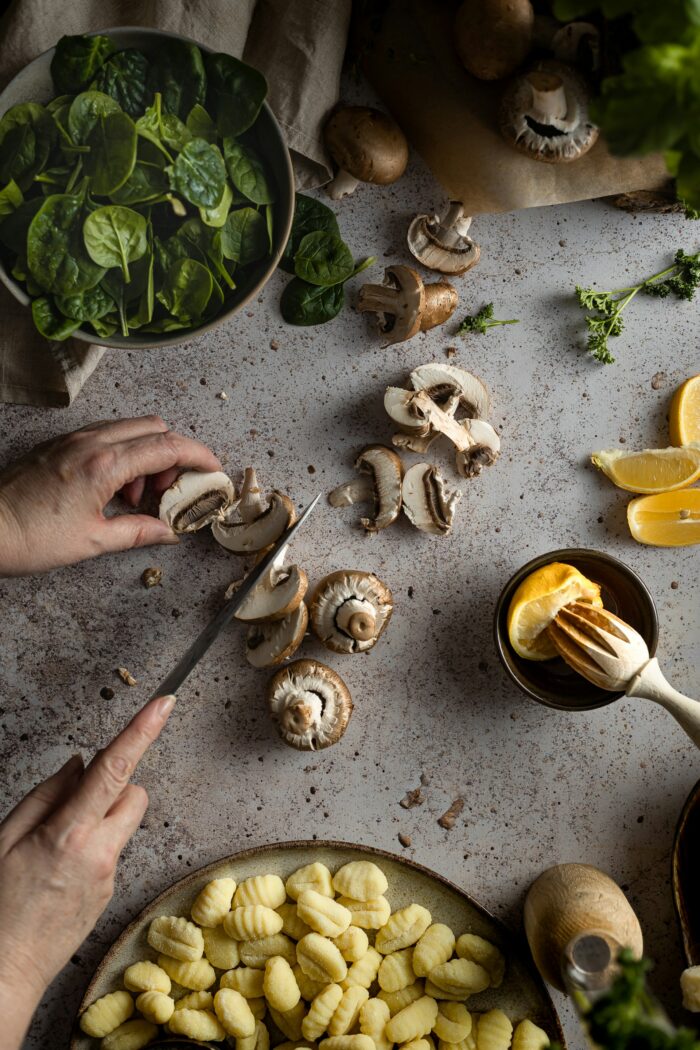If you’re pregnant, you might be wondering if cherries are safe to eat. Cherries are a delicious fruit that are enjoyed by many, but when it comes to pregnancy, it’s important to be cautious about what you eat. In this article, we’ll explore whether or not it’s safe to eat cherries while pregnant.
When it comes to eating cherries during pregnancy, the good news is that they are generally considered safe to eat. Cherries are a good source of vitamins A, C, and K, as well as potassium and fiber. These nutrients are important for both you and your developing baby. However, it’s important to keep in mind that you should always wash your cherries thoroughly before eating them to remove any bacteria or pesticides that may be present.
While cherries are generally safe to eat during pregnancy, there are a few things to keep in mind. For example, you should avoid eating too many cherries at once, as this can cause high sugar levels and potentially lead to gestational diabetes. Additionally, you should avoid eating chemically treated fruits or highly processed ones. By being mindful of these things, you can enjoy cherries as a healthy and delicious snack during your pregnancy.
Benefits of Eating Cherries During Pregnancy
If you’re pregnant and wondering whether it’s safe to eat cherries, the answer is yes! In fact, cherries are packed with nutrients that can benefit both you and your growing baby.
Here are some of the benefits of eating cherries during pregnancy:
1. Rich in Antioxidants
Cherries are a rich source of antioxidants, which can help protect your body against damage from harmful molecules called free radicals. Antioxidants can also help reduce inflammation and lower your risk of chronic diseases like heart disease and cancer.
2. Promotes Better Sleep
Cherries contain a natural sleep hormone called melatonin, which can help regulate your sleep-wake cycle and promote better sleep. This is especially important during pregnancy when sleep disturbances are common.
3. Helps Prevent Preeclampsia
Preeclampsia is a serious pregnancy complication that can cause high blood pressure and damage to organs like the liver and kidneys. Eating cherries during pregnancy can help prevent preeclampsia due to their high potassium content, which can help regulate blood pressure and prevent water retention.
4. Boosts Brain Health
Cherries contain pigments called anthocyanins, which can protect neural cells and promote the health of your baby’s developing brain. This is especially important during the third trimester when the brain is rapidly developing.
5. Helps Prevent Constipation
Constipation is a common discomfort during pregnancy. Cherries are a great source of fiber, which can help promote regular bowel movements and prevent constipation.
Overall, cherries are a safe and healthy fruit to eat during pregnancy. Just be sure to wash them thoroughly before eating and enjoy them in moderation as part of a balanced diet.
Nutritional Value of Cherries
When it comes to pregnancy, it is essential to eat a balanced diet that provides all the necessary nutrients. Cherries are a great addition to your diet as they are packed with vitamins, minerals, fiber, and antioxidants. Here are some of the nutritional benefits of cherries:
Vitamins and Minerals
Cherries are a good source of vitamins and minerals that are essential for a healthy pregnancy. One cup of cherries contains about 18% of the recommended daily intake of vitamin C, which is important for the growth and repair of tissues in your body. Cherries also contain vitamin A, which is important for vision and immune function, and potassium, which helps regulate blood pressure and fluid balance in your body.
Fiber Content
Cherries are a good source of fiber, which is important for maintaining healthy digestion during pregnancy. One cup of cherries contains about 3 grams of fiber, which can help prevent constipation and other digestive problems that are common during pregnancy.
Antioxidants
Cherries are rich in antioxidants, which help protect your body from damage caused by free radicals. Free radicals are unstable molecules that can damage cells and contribute to aging and disease. Cherries contain a type of antioxidant called anthocyanins, which give them their deep red color. These antioxidants have been shown to have anti-inflammatory and anti-cancer properties.
In summary, cherries are a nutritious and delicious fruit that can be safely consumed during pregnancy. They provide a range of vitamins, minerals, fiber, and antioxidants that are important for a healthy pregnancy.
Potential Risks and Considerations
When it comes to eating cherries during pregnancy, there are a few potential risks and considerations to keep in mind. In this section, we’ll discuss some of the most important ones.
Allergic Reactions
While rare, some people may be allergic to cherries. If you experience any symptoms of an allergic reaction after eating cherries, such as hives, swelling, or difficulty breathing, seek medical attention immediately. It’s important to note that a cherry allergy is not the same as oral allergy syndrome, which is a reaction to certain proteins in fruits and vegetables that can cause itching and swelling in the mouth and throat.
Sugar Content
Cherries are a high-sugar fruit, which means that excessive consumption can lead to high blood sugar levels and potentially gestational diabetes. It’s important to consume cherries in moderation and to balance them out with other nutrient-dense foods. According to Fruit Faves, chemically treated or highly processed fruits should be avoided during pregnancy.
Pesticide Exposure
Like many fruits, cherries can be exposed to pesticides during the growing process. While it’s important to consume fruits and vegetables for their nutritional benefits, it’s also important to minimize exposure to harmful chemicals. Whenever possible, choose organic cherries or wash them thoroughly before eating to reduce the risk of pesticide exposure.
By keeping these potential risks and considerations in mind, you can safely enjoy cherries as part of a balanced and nutritious diet during pregnancy.
Safe Cherry Consumption
If you’re pregnant and craving cherries, you’ll be happy to know that they are generally safe to eat. Cherries are packed with essential nutrients like vitamins A and C, potassium, calcium and iron among others. They also contain antioxidants known as anthocyanins that prevent cellular damage caused by free radicals while supporting overall immune function.
Portion Sizes
While cherries can be a healthy addition to your pregnancy diet, it’s important to keep portion sizes in mind. Eating too many cherries can lead to high sugar levels causing gestational diabetes. Therefore, it’s recommended to consume cherries in moderation and not overindulge.
Organic vs Non-Organic
When it comes to choosing between organic and non-organic cherries, it’s important to consider the potential exposure to pesticides. Organic cherries are grown without the use of synthetic pesticides and fertilizers, making them a safer option for pregnant women. However, if organic cherries are not available, it’s still safe to consume non-organic cherries as long as they are washed thoroughly before eating.
Fresh vs Processed
Fresh cherries are always the best option when it comes to consuming fruits during pregnancy. Processed cherries, such as those found in canned or packaged foods, may contain added sugars and preservatives that can be harmful to both you and your baby. Therefore, it’s recommended to choose fresh cherries whenever possible.
Overall, cherries are a nutritious and safe fruit to consume during pregnancy. By keeping portion sizes in check and choosing fresh, organic options whenever possible, you can enjoy the many health benefits that cherries have to offer.





